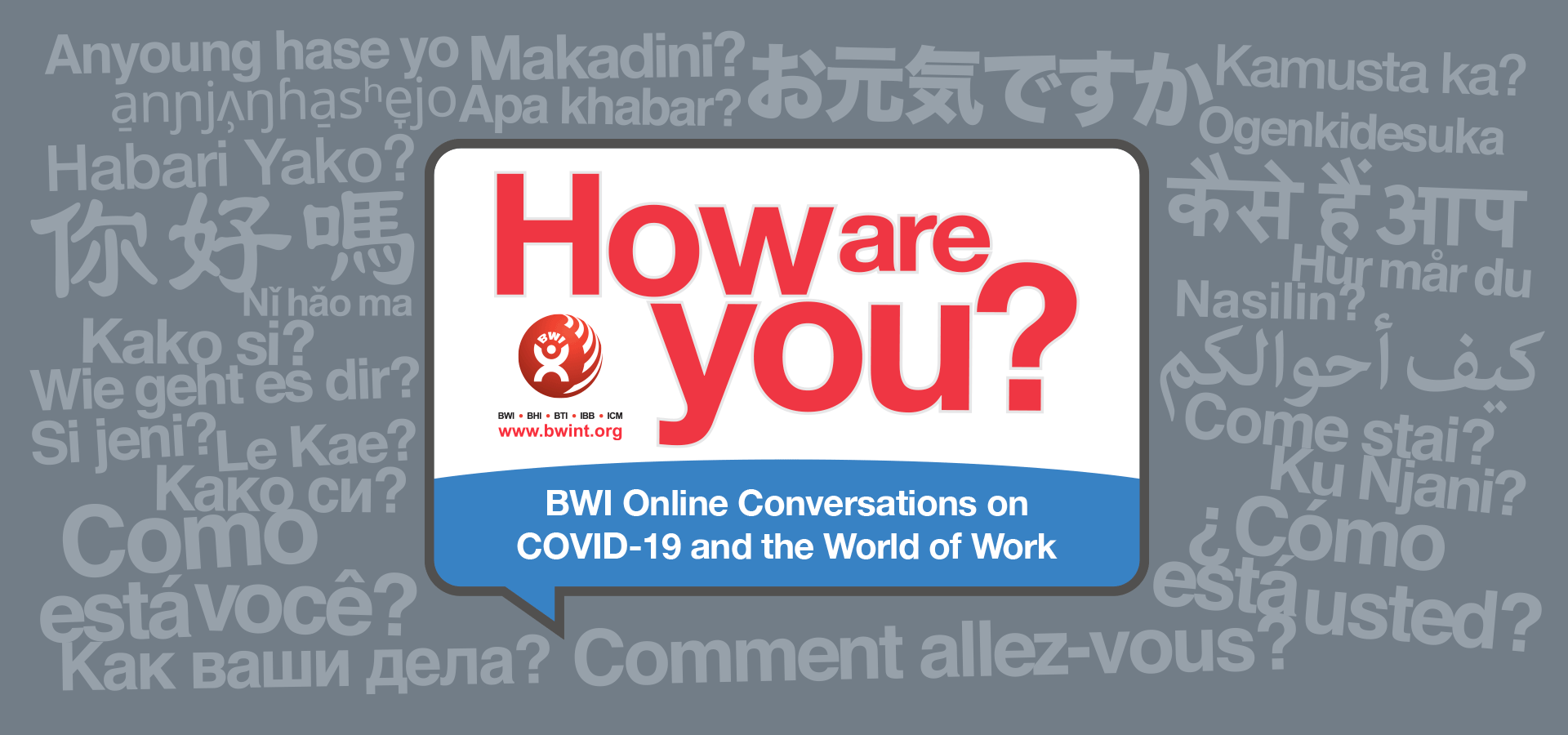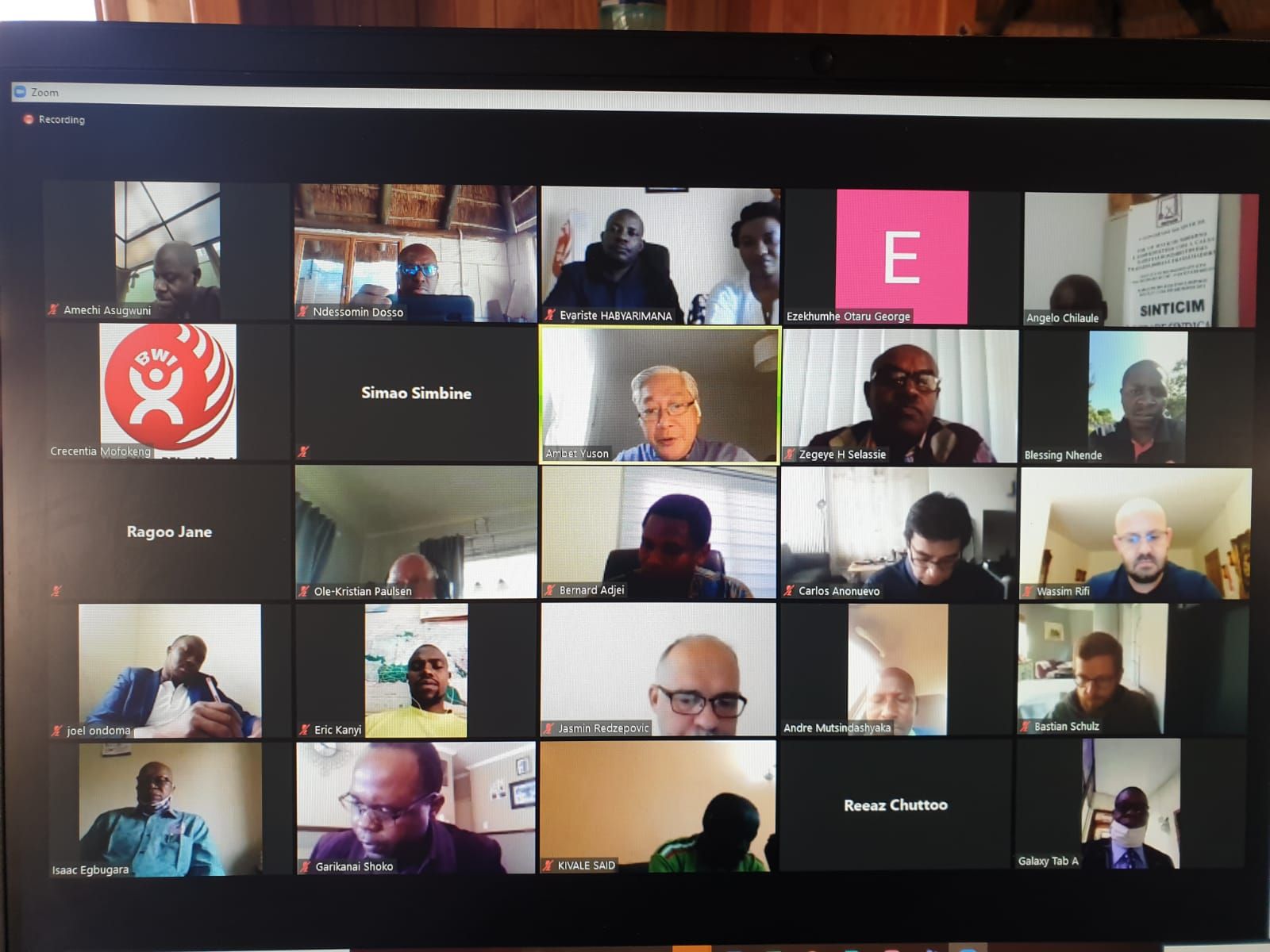 BWI Africa and Middle East held its first “How are you?” COVID-19 online conversations on 5 May. Forty (40) unionists, (9) of whom were women, from Africa Anglophone speaking countries participated in the online event. BWI’s Regional and Global Team and partners in Africa namely, Bastian Schultz and Iris Nothofer from FES, Ole-Kristian Paulsen from Industri Energi, Simião Simbine from SASK and Hope Kabuchu from FNV) also joined the discussion.
BWI Africa and Middle East held its first “How are you?” COVID-19 online conversations on 5 May. Forty (40) unionists, (9) of whom were women, from Africa Anglophone speaking countries participated in the online event. BWI’s Regional and Global Team and partners in Africa namely, Bastian Schultz and Iris Nothofer from FES, Ole-Kristian Paulsen from Industri Energi, Simião Simbine from SASK and Hope Kabuchu from FNV) also joined the discussion.
The meeting was moderated by the Regional Representative for Africa and Middle East Region Crecentia Mofokeng on behalf of the Presidium and officiated by BWI General Secretary Ambet Yuson, who listened to the latest developments in the region on COVID-19.
Participants discussed the negative effects of the COVID-19 pandemic in the world of work, such as the rising unemployment in many countries, wage distortions and workers’ remuneration payments, and the social and psychological effects of the lockdowns on workers and their families, including migrant and informal workers.
 The government and employers’ COVID-19 measures and financial assistance packages were also discussed by the affiliates, highlighting that many of them were the result of negotiations with unions, even as they assert that more needs to be done.
The government and employers’ COVID-19 measures and financial assistance packages were also discussed by the affiliates, highlighting that many of them were the result of negotiations with unions, even as they assert that more needs to be done.
In South Africa and Nigeria, several affiliates reported that they protested the practices of employers that exposed workers to COVID-19. Meanwhile, affiliates in Mauritius said that they provided humanitarian assistance to their members affected by the pandemic.
The participants expressed that there is a need for more education and awareness-raising efforts on COVID-19. They also said wanted more opportunities to exchange information and share experiences and good practices with different unions on work place labour inspection, CBAs, and other relevant issues.
BWI General Secretary Ambet Yuson congratulated all those who participated in the online conversations. “As long as there is no vaccine for COVID-19, things will never go back to how they used to be. We need to adapt to the new normal. Through these discussions, we hope to identify innovative ways of organising and continuing our service to our members.”
